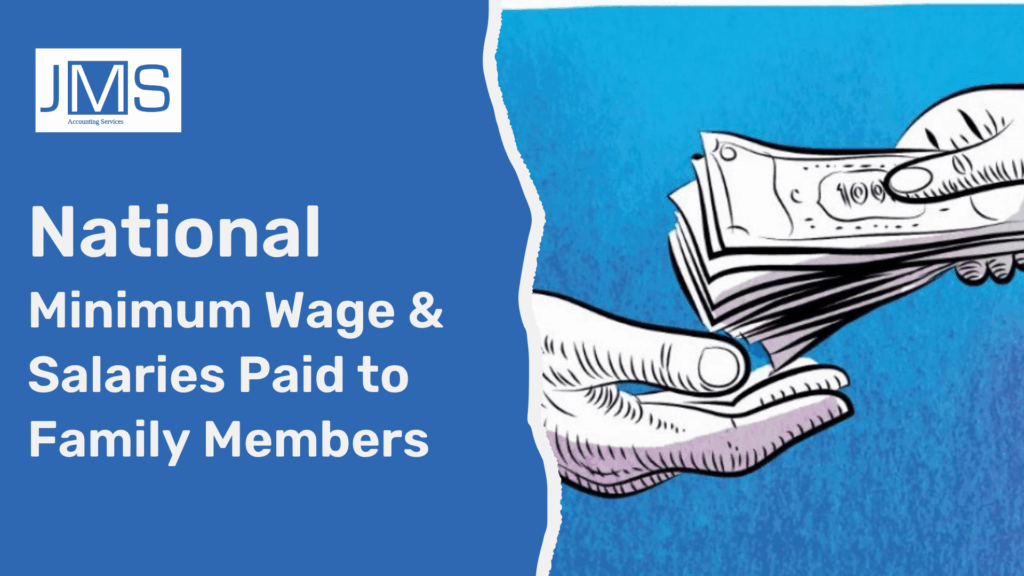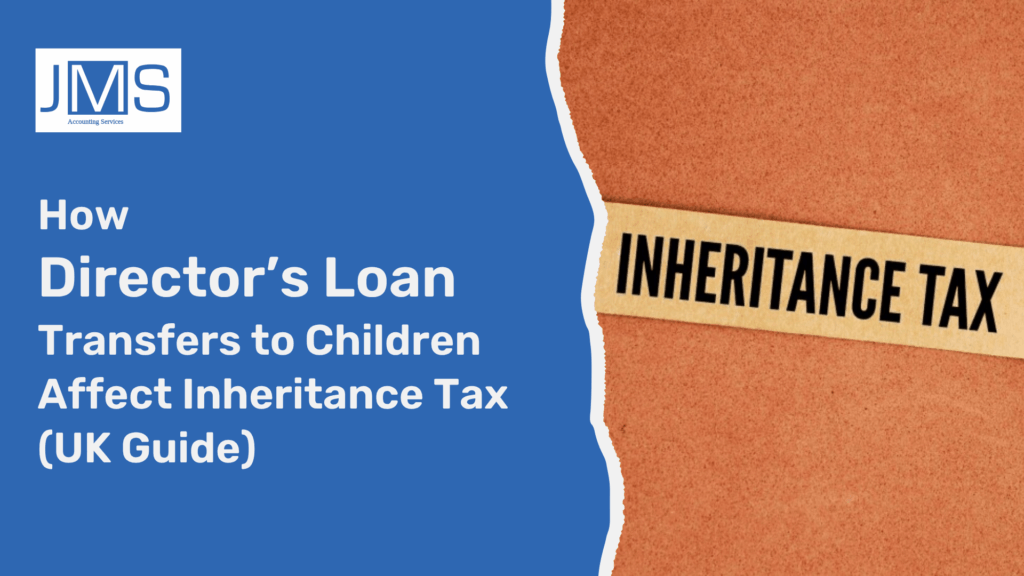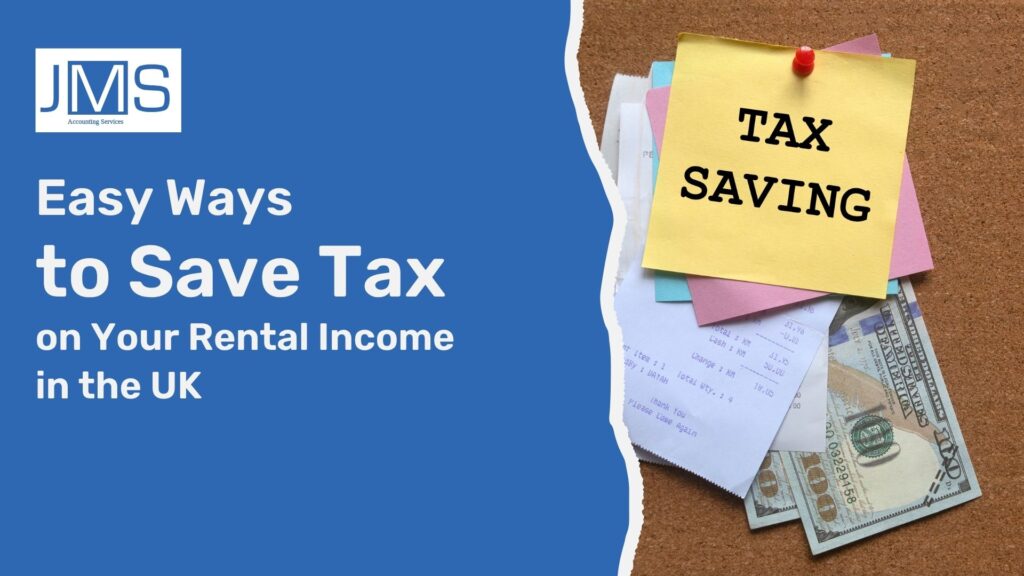A Complete Guide to the Legal Framework of Personal Guarantees

The legal aspects of personal guarantees are multifaceted and critical to ensure their validity, enforceability, and proper documentation. Below are the key legal considerations: 1. Nature of Personal Guarantees 2. Legal Requirements for Validity 3. Legal Principles and Enforcement 4. Defenses and Challenges A guarantor may challenge the enforceability on several grounds: 5. Legal Risks for Guarantors 6. Legal Protections and Limitations 7. Legal Documentation and Due Diligence Summary Personal guarantees must be carefully drafted and legally sound to be enforceable. They carry significant risks for guarantors and powerful rights for lenders. Proper legal advice and due diligence are essential to protect all involved parties. Jiten Shah Director, JMS Accounting
Personal Guarantees on Company Mortgages

What is a Personal Guarantee? A personal guarantee is a legal commitment made by an individual—typically a business owner or director—to personally repay a company’s debt if the company is unable to do so. In the context of a company mortgage, this means the individual personally guarantees the repayment of the mortgage loan obtained by the business. Why Do Lenders Require Personal Guarantees? Lenders often request personal guarantees for company mortgages to reduce their risk, especially in cases involving: The personal guarantee acts as an additional layer of security for the lender. Key Points About Personal Guarantees on Company Mortgages Scope of Guarantee: Legal Implications: Types of Guarantees: Risks for the Guarantor Negotiating Guarantee Terms Guarantors should: Alternatives to Personal Guarantees Important Considerations Summary A personal guarantee on a company mortgage is a serious financial commitment. It helps companies secure funding but exposes the guarantor to personal liability. Professional legal and financial advice is strongly recommended before entering into such agreements. Jiten Shah Director, JMS Accounting
National Minimum Wage & Salaries Paid to Family Members

Introduction Hiring family members in a business is common, especially in small or family-run enterprises. However, it’s crucial to understand how national minimum wage (NMW) laws apply—even when employing relatives. This guide outlines the key legal, tax, and HR considerations to ensure you remain fully compliant while paying fair wages. 1. 🏛️ Legal Obligation to Pay Minimum Wage ✅ Minimum Wage Laws Apply to All Workers In most jurisdictions, employers are legally required to pay at least the national minimum wage to all employees, including family members. The relationship to the business owner does not exempt someone from wage laws. ⚠️ Non-Compliance Can Lead to Penalties Failing to meet minimum wage standards—even for relatives—can result in fines, back pay, and reputational damage. Government agencies treat all employees equally when enforcing wage laws. 2. 👨👩👧👦 Paying Wages to Family Members: Key Rules 💼 Actual Work Must Be Performed The family member must genuinely perform work for the business. You cannot claim payroll expenses or tax deductions for relatives unless they are doing real, documented work. 💷 Wages Must Reflect Work Done Pay must be reasonable and in line with market rates for the role. Underpaying family members—or overpaying to reduce taxable profits—can trigger audits or penalties. 3. 👩⚖️ Employment Rights for Family Members 📋 Equal Treatment Under Employment Law Family members employed in your business are entitled to the same legal rights as other employees, including: 💰 Subject to Payroll Taxes Wages paid must go through payroll like any other employee, with appropriate tax deductions and national insurance (or equivalent) contributions. 4. 📂 Documentation & Tax Compliance 🧾 Maintain Proper Records To comply with tax and employment law, you must: 💡 Tip: Use HMRC-compliant or jurisdiction-compliant payroll software to ensure everything is tracked and submitted correctly. 5. ⚖️ Special Cases & Exceptions 🛑 Limited Exemptions May Exist Some countries allow limited exemptions for family members working in truly informal or micro-businesses (e.g., children helping with chores). However, these are usually narrowly defined and do not apply to paid employees. 🧑🔧 Voluntary Work Is Different If a family member is volunteering and not being paid, minimum wage laws may not apply. However, if any payment or benefit in kind is given, this could trigger employer obligations. ✅ Summary & Employer Checklist Before hiring or paying a family member in your business, ask: 👉 If the answer is yes to all of the above, you’re on the right track. 📞 Need Help Drafting a Family Employment Policy? If you’re unsure how to structure pay for family members or want to avoid legal risks, we can help you create a custom employment policy and ensure you’re compliant with HMRC or other relevant authorities. Jiten Shah Director, JMS Accounting
How Director’s Loan Transfers to Children Affect Inheritance Tax (UK Guide)

Assigning directors’ loans to children can have significant inheritance tax (IHT) implications, depending on how the transaction is structured and the timing. Here are some key points to consider: 1. Nature of the Loan Transfer Gift vs. Loan:When you assign a director’s loan to a child, it can be viewed as either a gift or a transfer of the loan amount. If the loan is simply transferred without formal repayment terms, HM Revenue & Customs (HMRC) may consider it a disposal or gift. Formal Assignment:Proper documentation of the transfer as an assignment of the debt can help clarify the nature of the transfer. 2. Potential Inheritance Tax (IHT) Implications Gift with Potentially Exempt Transfer (PET):If the transfer of the loan is considered a gift, it may be classified as a PET. Such gifts are potentially exempt from IHT if the donor survives for seven years after making the gift. Immediate IHT Liability:If the transfer is made and the donor dies within seven years, the value of the gift (the loan amount) may be included in the estate for IHT purposes, potentially increasing the estate’s IHT liability. Charge on the Recipient:If the transfer involves a debt owed to the estate (e.g., if the director’s loan is assigned to a child), the child’s receipt of the loan may not be a taxable event per se, but the value of the gift remains relevant for IHT. 3. Impact on the Estate Depletion of the Estate:Assigning loans to children effectively reduces the estate’s value, which may decrease future IHT liabilities if the estate is below the nil-rate band. Potential for Clawback:If the loan is forgiven or not repaid, it could be seen as a gift, triggering IHT considerations. 4. Other Tax Considerations Income Tax and Capital Gains Tax:The transfer of the loan itself may not trigger immediate income or CGT, but if the loan is forgiven, there could be CGT implications. Chargeable Events:Forgiveness of the loan could be a chargeable event for IHT purposes, especially if the loan is considered a gift. 5. Planning Tips 6. Consult a Professional Given the complexity and the potential for significant tax consequences, it’s advisable to consult with a qualified tax advisor or estate planner before proceeding with such transactions. Summary Assigning directors’ loans to children can be considered a gift for IHT purposes, potentially triggering a PET that is only exempt if the donor survives seven years. If the donor dies within that period, the value of the loan may be included in the estate for IHT calculation. Proper documentation and planning are essential, and professional advice is strongly recommended.
How Different Countries Apply VAT on Cryptocurrency Transactions

The treatment of VAT (Value Added Tax) on cryptocurrencies varies depending on the country and its specific tax laws. Here’s a general overview: European Union (EU) Cryptocurrencies as means of payment: Generally, the EU treats cryptocurrencies as a form of electronic money or financial instruments rather than goods or services. VAT applicability: In many EU member states, the exchange of cryptocurrencies for fiat currency (such as euros, dollars) is exempt from VAT. This is because cryptocurrencies are often considered a means of payment. Buying and selling crypto: When you buy or sell cryptocurrencies, VAT typically does not apply to the transaction itself, but services related to crypto (like trading platforms) might be subject to VAT. United Kingdom HMRC stance: HM Revenue & Customs (HMRC) considers cryptocurrencies as property, not currency. VAT on crypto: Generally, cryptocurrency transactions are exempt from VAT in the UK, but certain services related to cryptocurrencies (like brokerage or trading platforms) may be subject to VAT. United States IRS classification: The IRS considers cryptocurrencies as property for tax purposes. VAT implications: The U.S. does not have a VAT system; instead, it has sales tax, which varies by state. Cryptocurrency transactions are generally not subject to sales tax, but the sale of goods or services for crypto may trigger sales tax depending on the jurisdiction. Other countries The VAT or sales tax treatment of cryptocurrencies varies widely: Summary
Plan Ahead: Higher HMRC Interest Charges in Effect From May 2025

In a move that has caught the attention of many UK businesses and taxpayers, Her Majesty’s Revenue and Customs (HMRC) has announced an increase in the interest rates applied to late payments. Effective immediately, the interest rate on overdue amounts has been raised by 1.5%. This change underscores the government’s aim to encourage timely payments and maintain fiscal discipline. What Has Changed? Previously, the interest rate for late payments was set at a certain baseline (for example, 3.0%). With the recent adjustment, the new rate has risen to 4.5%. This means that any outstanding tax liabilities, VAT, or other dues that are not settled by their due date will accrue interest at this higher rate. Why Did HMRC Increase the Interest Rate? The primary motivation behind this increase is to: Encourage prompt payment: Higher interest rates serve as a deterrent against late payments, helping HMRC improve cash flow and reduce the administrative burden associated with chasing overdue accounts. Align with economic conditions: The rate change may reflect broader economic factors, such as inflation or changes in the Bank of England base rate, which influence borrowing costs and financial discipline. Impact on Businesses For businesses and individuals, this change has several implications: Higher costs for overdue payments:Late payment penalties will now accrue more interest, increasing the total amount owed if payments are not made on time. Cash flow considerations: Companies may need to reassess their cash flow management strategies to avoid penalties and additional interest charges. Incentive for timely filing and payment: The increased rate underscores the importance of adhering to deadlines for submitting tax returns and making payments. Practical Tips for Businesses Review payment schedules: Ensure all tax liabilities are scheduled and paid well before the due date. Set up reminders: Use calendar alerts or accounting software to track upcoming deadlines. Maintain accurate records: Keep detailed records of payments made and correspondence with HMRC. Seek professional advice: If uncertain about payment obligations or facing cash flow issues, consult a tax advisor or accountant. Conclusion HMRC’s decision to increase interest rates on late payments by 1.5% highlights the importance of timely tax compliance. While the higher rates may seem burdensome, they serve as a reminder for businesses to prioritize punctual payments, helping to avoid unnecessary costs and potential penalties. Staying proactive and organized can mitigate the impact of these changes and ensure smooth financial operations. Stay informed and plan ahead to keep your business compliant and financially healthy.
Why UK landlords need a Power of Attorney

In the UK, landlords may seek Power of Attorney (PoA) for several reasons related to managing their property portfolios, especially when they are unable to personally handle certain affairs. Here are some common reasons why UK landlords might need a Power of Attorney: Types of Power of Attorney Relevant to Landlords General Power of Attorney: Grants broad authority over financial and property matters, but typically ceases if the donor becomes mentally incapacitated.Lasting Power of Attorney (LPA): Specifically designed to continue acting even if the donor becomes mentally incapable; often preferred for ongoing property management. Important Considerations Legal Validity: PoA documents must be properly drafted and registered (for LPAs) to be valid.Trust and Selection: Choosing a trustworthy attorney is crucial because they will have significant control over property affairs.Limitations: PoA does not transfer ownership but allows the attorney to act on behalf of the landlord within specified powers. Summary UK landlords need Power of Attorneys primarily to facilitate the management, sale, or legal handling of their property interests when they are unavailable, incapacitated, or wish to delegate authority securely and legally. If you need specific advice or help drafting a PoA, consulting a solicitor specializing in property law is recommended.
Preserving Legacy Through Trusts: The Smart Way to Own UK Property

Preserving Legacy Through Trusts: The Smart Way to Own UK Property BEYOND OWNERSHIP A High-Net-Worth Perspective on Trusts and Estate Planning for Residential Property You don’t just buy a house. You buy permanence. You buy legacy. You buy a seat at the table your grandchildren might one day inherit. But what if the very system meant to protect property ends up slicing 40% of its value every generation? That’s the reality many UK-based and international high-net-worth individuals (HNWIs) face when it comes to residential property ownership. The taxman, unlike a courteous dinner guest, rarely leaves without his share — and quite a generous one at that. It’s here that trusts step in — not as tax-dodging devices (those days are well behind us), but as vehicles of foresight, legacy, and intelligent planning. When used appropriately, trusts help ensure your wealth endures and serves not just your children, but your grandchildren — and perhaps even their children. Let’s explore why placing residential property in a trust can be one of the most powerful estate-planning decisions you’ll make, especially if done with the right advice and intention. Owning is Easy. Keeping It Is the Challenge. Let’s start with a fundamental truth: buying property is easy if you have the capital. Keeping it — or more specifically, keeping it out of HMRC’s inheritance tax net — is where it gets tricky. The UK inheritance tax (IHT) system is no secret. If your estate exceeds the £325,000 nil-rate band (and let’s be honest — most central London homes alone qualify), 40% of everything above that threshold is claimed by HMRC when you die. That includes residential property held in your personal name. For many, this results in properties being sold, mortgaged, or otherwise disassembled to satisfy that tax bill. This isn’t merely inconvenient — it’s disruptive to families, destructive to legacies, and inefficient from a planning perspective. Enter: the trust. What Is a Trust, Really? Think of a trust as a family office in miniature form. It’s not a loophole, not a tax haven, and certainly not an “easy button.” It’s a legal structure in which trustees hold assets — like property — on behalf of beneficiaries, under the terms of a trust deed. You, the settlor, gift the property to the trust (either during your lifetime or upon your death). Trustees manage it. Beneficiaries enjoy the benefits of it. Done well, it’s a way of saying: “This property is for my family — just not owned by any one of them individually.” And because no one person owns it, it avoids the regular 40% inheritance tax hit every time one generation dies. But let’s not get ahead of ourselves. This isn’t tax alchemy. It’s strategy. So, Why a Trust for Residential Property? Let’s put it plainly: because trusts are built for permanence. They exist to guard assets, dictate how they’re used, and soften the tax blow over decades. 1. Long-Term Inheritance Tax (IHT) Efficiency Instead of handing 40% of the property’s value to HMRC on your death — and again when your children die — trusts incur a maximum of 6% every ten years. That’s it. It’s not avoidance. It’s just the law — and if you’re building a legacy, that matters. This small, regular charge is far preferable to a one-off 40% event that can force a property sale. 2. Asset Protection from Divorce, Bankruptcy, or Disputes Your beneficiaries can enjoy the use of the property, but they don’t own it. This makes it harder for ex-spouses, creditors, or bad business decisions to put family property at risk. It’s one thing to inherit a house. It’s another to lose it in a court settlement. A trust gives you a degree of firewall — not foolproof, but powerful. 3. Avoiding Probate and Legal Gridlock When you die, assets in your name get locked up. Probate can take months — sometimes years — depending on the complexity. A trust bypasses this completely. The trustees already own the property. No freezing. No court rubber-stamping. Just continuity. 4. Control Beyond the Grave A bit dramatic? Perhaps. But we’ve all heard stories of children squandering inheritance, or family disputes over “who gets the London flat.” A trust lets you set the rules: who can live in the property, who can receive income from it, who can inherit it, and under what conditions. Control isn’t about micromanagement — it’s about stability. It’s about intention. 5. Privacy and Discretion Trusts aren’t listed on Companies House. The Land Registry shows the trustees, not the beneficiaries. While transparency regulations have grown (rightfully so), trusts still offer a greater degree of privacy than personal or corporate ownership. For those with public profiles, or who simply prefer discretion, this can be reason enough. But It’s Not a Free Ride: Trusts Have Costs Let’s talk tax — because there’s no way around it. ✅ Initial Costs: ✅ Ongoing Taxes: ✅ Professional Fees: Running a trust properly — as you must — involves solicitor fees, tax advice, sometimes even professional trustees. But remember: this is not money spent, it’s money stewarded. Let’s put it this way: a well-run trust costs less than a disorganised estate. Trusts vs the Other Guys: A Quick View Feature Trust Company Individual Inheritance Tax Up to 6% per 10 years 40% on shares 40% on death ATED ❌ None ✅ Yes ❌ None CGT on Property 28% 25% Corp Tax 28% (if not PPR) Control Mechanism Deed-based Corporate law Direct ownership Use Flexibility Tailored per beneficiary Director/owner only Full use only if owner Succession Planning ✅ Built-in ❌ Requires planning ❌ Needs will/trust When It Works Best When to Rethink It The Modern Reality: Compliance and Transparency Gone are the days when trusts operated in the shadows. Today, thanks to the Trust Registration Service (TRS) and Register of Overseas Entities, there’s a level of transparency that ensures compliance. This is not a bad thing. In fact, it legitimises the trust as a planning tool — not an evasion scheme.
Easy Ways to Save Tax on Your Rental Income in the UK

Are you a landlord in the UK looking to keep more of your rental income? Taxes can reduce what you earn, but don’t worry! With the right tips, you can save money and stay within the law. At JMS Accounting, our CEO Jiten Shah and his team help landlords like you earn more and stress less. Here are some simple and easy tax tips for landlords in the UK: 1. Claim the Money You Spend on the Property You can take away some costs from your rental income, so you pay less tax. These are called allowable expenses. Some examples are: Just remember: only small fixes count. Big upgrades don’t help with this kind of tax, but they may help when you sell the property. 2. Use the £1,000 Property Income Allowance If you earn £1,000 or less from rent in one year, you don’t need to pay tax on it. That’s called the Property Income Allowance. Even if you earn more, sometimes using this allowance saves you more tax than listing your actual costs. You must choose one or the other. 3. Claim for Replacing Furniture or Items If you replace furniture or things like a cooker or washing machine, you can claim back the cost. This is called Replacement of Domestic Items Relief. You can claim for: But remember: you can only claim for a similar item, not a better or bigger one. 4. Share the Property with Your Partner If you own the property with your husband, wife, or partner, you might pay less tax. That’s because the rent is split, and if one of you earns less, you’ll pay a lower tax rate. With the right documents, you can even choose how much of the rent goes to each person. This helps you both save more. 5. Use a Limited Company If you own many properties or earn a lot from rent, starting a limited company might help. A company pays Corporation Tax, which could be lower than personal tax. Benefits: But be careful: this is better for long-term landlords. Companies need more paperwork, and mortgages can cost more. 6. Use Tax-Free Limits the Right Way Your rental income adds to any other income you have. That might push you into a higher tax band. But you can plan smartly: 7. Keep Good Notes and Don’t Be Late To save tax and avoid fines, you need to stay organised: This helps you stay ready if HMRC checks anything and might help you save even more. 8. Ask for Expert Help Tax rules can change fast. Talking to a professional is a smart move. At JMS Accounting, we help landlords get the best rental property tax savings and stay safe with the law. Want to Keep More of Your Rental Money? Talk to Jiten Shah and the friendly team at JMS Accounting. We’ll help you find every tax-saving tip that works for your situation from allowable expenses to setting up a company. Let us help you keep more of what you earn and make your property business even better.